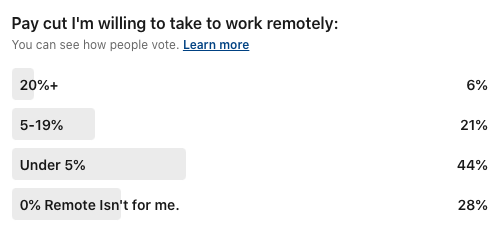Out in Vegas at one of my favorite conferences, SHRM Talent, this week. I love and missed interacting with all the TA pros and leaders, so this week was really energizing!
There are so many takeaways from this week at SHRM Talent. It seemed both odd and familiar all at the same time. I’ve been going to conferences for over a decade and very few put on a better conference than SHRM, it’s always first-class, and the 2021 SHRM Talent was at the new Cesar’s Forum conference center which is super nice.
The Reactions:
- SHRM has opened up their 2021 conferences to be both in-person and virtual. This combination has been unique. After a year and a half of only doing virutual, as a speaker, you have to get back into practice of the cadence of in-person speaking. In virtual, you have very little audience reaction to what you’re saying, so you just plow through the content. In-person you get reactions, so you have timing that you have to be concerned about. Funny line, hold for laughter, wait I actually heard some laughter!
- At the same time, you still have a virtual audience that you have to engage. What I found, across many sessions, that quesitons from the virtual audience were usually 3-4 times more than the in-person audience. I think in the future, SHRM and others, will figure out a way for people to ask questions all through one format, so those in-person attendees can have the same comfort level of asking their questions as well.
- Those attendees who chose to be in-person seemed to be very engaged! It’s like these were the folks hungry for real-life interactions and they are making the most of being out in the wild for the first time in long time. Everyone has been very friendly, talkative, welcoming. I think we are all just happy for a bit of back to normal.
- SHRM has caught some criticism for going back to in-person, but I applaud them for making the hard decision to figuring this out. It’s not going to be perfect, but at some point we must rip off the band-aid and get back to some normalacy, while trying to be safe. Masks were required and you were reminded immediately if you forgot. I was asked upon checking in if I was vaccinated and had to sign off on that. It wasn’t required, but highly encouraged, and definitely tracking attendees.
- The difficult piece of all of this Covid/Vaccine stuff. You go to breakfast and sit down at a round talbe with four or five peers and all of sudden no one has masks on and everyone is talkign and interacting. You go from your hotel room through a Vegas casino cesspool and into the conference and back and forth. Is anyone really believing that any one is safe? It’s all kind of a game of make believe. This isn’t a SHRM issue, this is an issue every single in-person conference has to navigate. The HR Tech Conference has mandated vaccines, but the same reality will be experienced there as well. The reall world is all around us, just because we protect ourselves some part of it, doesn’t mean the rest isn’t all around us.
- The content and the practitioners desire to learn and grow is still so inspiring to witness live. To see people really getting nuggets they can take back to the office and make them better, and see a speaker talking passionately to an audience can not be replicated virtually. I think we’ve found that when you can’t do virtual and good second place is virtual, but in-person just hits differently.
- I don’t think SHRM will ever be able to put the toothpaste back into the tub when it comes to having virutal attendees. I also think this is awesome for those pros who can’t afford the travel, or can’t travel for so many reasons. But it does mean that in-person SHRM audiences will probably be smaller moving forward. SHRM National is rumored to be around 11,000 attendees this year, down from over 17,000 (in-person) for 2019. Also, around 25-40% of those 11,000 will attend virtually. Virutal attendees are very profitable for SHRM, so it’s not all bad to the bottom-line for SHRM. I do think in the future SHRM, and others, will have to figure out some unique things to do for virtual attendees verse the in-person. Transform Recruitment Marketing did an unboxing for their virtual audience, and I can definitely see SHRM working with vendors to put something like this together to help make those virtual attendees feel more connected to the conference experience.
- Finally, I got some “real” hugs this week from friends I haven’t seen in a long time and it felt amazing! And, yes, we were all masked and vaccinated!
Shout out to the SHRM staff for putting on a great event under a lot of uncertainty. As always they handled it with class and professionalism, and I’m sure it was a great trial run for them to get ready for the upcoming annual conference!
SHRM Annual Conference is happening on September 9-12th and I’ll be back in Vegas to present to a live audience again, and I’m so excited to see how this goes as well since the numbers will be much larger, and then soon after back again to The HR Technology Conference in Vegas on Sept 28 – Oct 1. Come join me!

